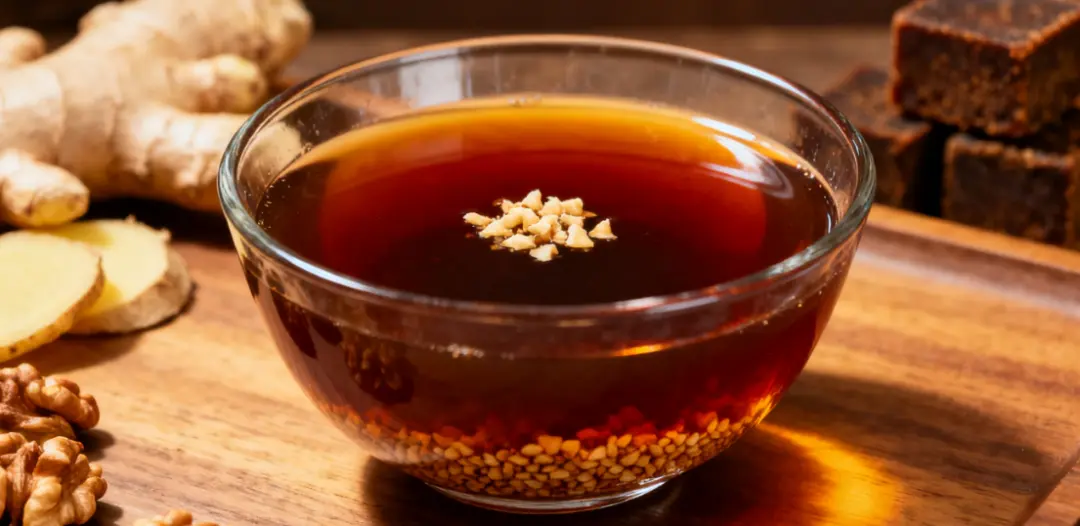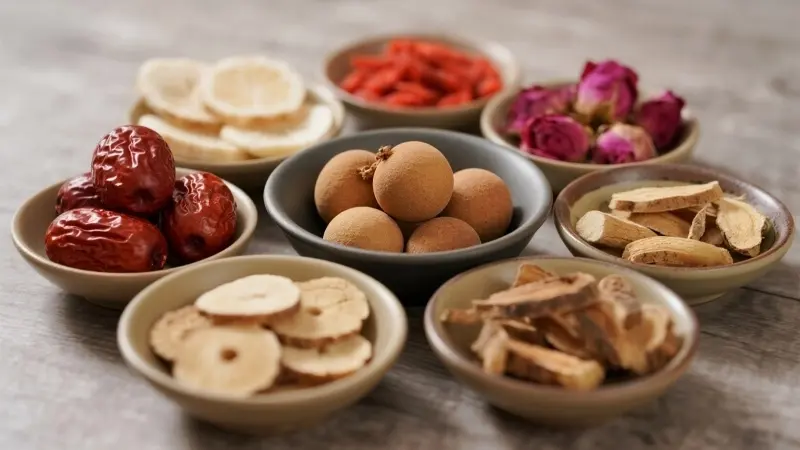Which Tea is Best for Menstrual Cramps?
If you're asking, "what type of tea is good for menstrual cramps," you're not alone. Many women turn to herbal remedies for natural relief during their cycle. Certain teas offer specific compounds that can help manage pain, inflammation, and the anxiety often associated with PMS. Understanding the benefits of each can help you decide what tea is best for menstrual cramps for your specific needs.

1. Popular Single-Herb Teas for Menstrual Discomfort
For immediate relief, several well-known single-ingredient teas offer specific benefits.
Peppermint Tea
Many people ask, "is peppermint tea good for menstrual cramps?" The answer is often yes, due to its high menthol content. Menthol possesses analgesic (pain-relieving) and muscle-relaxing properties. Pain during menstruation is frequently caused by contractions of the uterine smooth muscle; the menthol in peppermint tea helps alleviate this discomfort by relaxing those muscles. Furthermore, peppermint tea has mild anti-inflammatory effects that can soothe the inflammatory response accompanying cramps. For best results, consider starting to drink 2-3 cups daily one week before your expected period.
Chamomile Tea
"Does chamomile tea help with menstrual cramps?" Absolutely. Chamomile contains active components like apigenin, which interacts with the nervous system to help alleviate anxiety and tension. Given that stress often exacerbates hormonal fluctuations and pain, drinking chamomile tea—or even using its essential oil—can promote mental and physical relaxation. Its benefits extend to easing general menstrual discomfort, improving sleep quality, and providing antioxidant support for overall wellness.
Red Raspberry Leaf Tea
Made from the leaves of the raspberry plant, this tea has a mild, black-tea-like flavor. It is historically associated with various women's health purposes, including strengthening the uterus. However, its purported ability to stimulate uterine contractions is a point of caution. Since uterine contractions are the cause of primary dysmenorrhea (cramps), Red Raspberry Leaf Tea could potentially worsen your pain. Despite its long history of use, recent animal studies on mice did not find it to affect uterine contractions. Use this tea cautiously, particularly if your primary goal is pain relief rather than uterine toning.
2. Seeking a Comprehensive Solution: Herbal Tea Blends
While single-herb teas are helpful, the most effective solution for menstrual discomfort often comes from a synergistic blend of herbs, formulated according to principles of traditional herbal medicine. These blends, sometimes referred to as a complex chinese herbal tea for menstrual cramps, target not just the pain, but the underlying imbalances that lead to it.
Laicuherb's Womb Detox Tea (Women's Wellness Blend)
A pre-mixed herbal tea offers a convenient and more holistic approach than trying to combine individual teas. Laicuherb's blend is designed with female-friendly botanicals that interact to promote warmth, circulation, and balance in the lower abdomen.
Key Ingredients for Synergy:
- Longan
- Red Dates
- Wolfberry
- Angelica
- Dried Ginger
- Roses
- Peony Flowers

⚠️ Final Note
While herbal teas offer effective natural relief, none of these products are intended to diagnose, treat, cure, or prevent any disease. If you experience severe or debilitating menstrual pain, please consult with a healthcare professional to determine the underlying cause and receive appropriate medical treatment.
Scientific References
- Nair, B., & Varma, V. (2019). Antispasmodic and analgesic effects of menthol on uterine smooth muscle cells. Journal of Smooth Muscle Research, 55(2), 55-62.
- Srivastava, J. K., et al. (2010). Chamomile: A herbal medicine of the past with a bright future. Molecular Medicine Reports, 3(6), 895-901.
- Parsons, M., et al. (2018). Raspberry leaf in pregnancy: A systematic review. Journal of Midwifery & Women's Health, 63(5), 577-584.
- Zhao, H., et al. (2021). *Angelica sinensis* (Danggui): A review of its traditional uses, phytochemistry and pharmacology in women's health. Chinese Medicine, 16(1), 10.
- Ghafari, S., et al. (2017). The effect of dried ginger on severity of primary dysmenorrhea. Journal of Traditional and Complementary Medicine, 7(4), 478-482.
About the Author
Laicuherb
The core content team at Laicuherb is a collective of experts, including health professionals, consultants in Traditional Chinese Medicine, and experienced content strategists. Some articles are authored by our brand's founders or R&D scientists. OLaicuherbur team has deep expertise in herbal health, integrating the wisdom of traditional medicine, modern nutrition, and women's health research to transform ancient wellness principles into practical, accessible content for everyday life.








